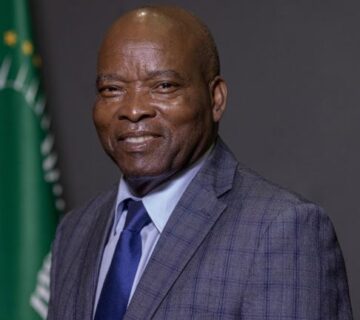By Rim Ben Khalifa
From 8 to 10 September 2025, Addis Ababa became the epicenter of Africa’s climate discourse, hosting the Second African Climate Summit under the banner: “Accelerating Global Climate Solutions: Financing Africa’s Green and Resilient Development.” The summit brought together a diverse array of leaders and stakeholders, including Kenyan President William Ruto, Ethiopian Prime Minister Abiy Ahmed, AU Commission Chairperson Mahamoud Ali Youssouf, UN Secretary-General António Guterres, regional heads such as President Félix Tshisekedi and President João Lourenço, climate officials, business leaders, scientists, youth representatives, and grassroots activists. The convergence of political authority and civil society signalled a clear message: Africa is determined to assert its leadership in the global climate arena.
For decades, Africa has borne the heaviest burden of climate change while contributing the least to global emissions. Historically marginalized in negotiations, the continent has often been treated as a recipient of aid rather than an active architect of solutions. At this summit, that narrative shifted decisively. Leaders and participants emphasised that Africa is not asking for charity; it is demanding justice, accountability, and meaningful investment.
The Addis Ababa Declaration: Concrete Commitments and Ambitions
The summit culminated in the Addis Ababa Declaration, a document that both diagnoses Africa’s challenges and sets forth an ambitious roadmap. Key points include:
- Africa receives barely 1% of global climate finance, despite being disproportionately affected by extreme weather, droughts, and rising sea levels.
- A call for fair, transparent, and direct financing mechanisms, ensuring funds reach adaptation projects, renewable energy initiatives, and local communities, bypassing bureaucratic bottlenecks.
- A commitment to generate 300 gigawatts of renewable energy by 2030, with a long-term goal of covering 90% of the continent’s energy needs from clean sources by 2050.
- Launch of the African Climate Innovation Initiative, aiming to develop 1,000 homegrown climate solutions by 2030, empowering youth and local entrepreneurs.
- Support for flagship projects, including Ethiopia’s Grand Renaissance Dam and the nation’s Green Legacy Initiative, targeting 50 billion trees planted by 2026.
- Inclusive governance, with youth, women, and local communities placed at the center of climate policy-making.
- Presentation of the declaration at COP30 in Brazil and Africa’s intent to host COP32 in 2027, signaling a demand for a central role in global climate negotiations.
These outcomes were not presented as mere technical commitments, they are a political statement. Africa, alongside other nations of the Global South, is asserting that symbolic pledges are no longer acceptable. As Kenyan President William Ruto stated, Western commitments have remained little more than ink on paper, and Africa can no longer be held hostage to empty promises.
Beyond Diagnosis: Africa as a Source of Solutions
The summit was both an indictment and a declaration. It highlighted systemic failures: the unmet $100 billion climate finance pledge, inequitable carbon markets, and the debt burden that traps African economies in cycles of vulnerability. At the same time, it projected Africa as a continent of solutions, capable of leading a green transformation through renewable energy corridors, climate-resilient agriculture, reforestation campaigns, and innovative technologies.
The stakes are high. Without adequate financing, Africa risks a future dominated by climate disasters, displacement, and stalled development. Yet with support and investment, the continent has the potential to become a global leader in the green transition, leveraging its solar and hydropower potential and a youthful workforce to pioneer new models of resilience.
Africa’s New Narrative: Justice, Accountability, Environmental Peace
The Second African Climate Summit did more than issue statements; it redefined Africa’s position on the global stage. No longer content to be a passive recipient of aid or a marginal voice in negotiations dominated by wealthier nations, Africa asserted itself as a central architect of climate solutions and environmental peace. The summit made clear that justice cannot be measured in promises or symbolic gestures, it must be tangible, enforceable, and directed toward those most affected.
Africa’s demand for accountability is rooted in a historical imbalance: while the continent has contributed the least to global greenhouse gas emissions, it suffers disproportionately from floods, droughts, desertification, and resource conflicts exacerbated by climate change. Leaders emphasised that climate finance should not be delayed or diverted through bureaucracies but must flow directly to adaptation initiatives, renewable energy projects, and community-based programs that not only safeguard lives and livelihoods but also reduce tensions over scarce resources, fostering stability and peace in fragile regions.
Beyond finance, the summit stressed equity in decision-making. Youth, women, and local communities were not mere observers but active participants in shaping policy, signalling a shift from closed-door diplomacy to inclusive governance. By integrating environmental peacebuilding principles into national and regional climate strategies, Africa is asserting that climate action and conflict prevention are inseparable: managing water resources, protecting forests, and ensuring energy access are essential steps toward preventing disputes and fostering cooperation across borders.
Africa also framed its climate ambitions as both moral and strategic imperatives. By committing to 300 gigawatts of renewable energy by 2030 and launching initiatives like the African Climate Innovation Initiative, the continent is demonstrating that sustainable development, green growth, and peacebuilding can coexist. These actions reinforce Africa’s vision of resilience, showing the world that climate solutions can simultaneously address environmental, social, and political vulnerabilities.
The message from Addis Ababa is unequivocal: the world cannot tackle climate change without placing Africa at the core of negotiations, solutions, funding mechanisms, and peacebuilding strategies. The summit made it clear that the era of Africa being treated solely as a victim has ended. Today, the continent demands justice, tangible action, accountability, and environmental stability, offering innovative solutions and leadership that the global community can no longer ignore.
.






No comment